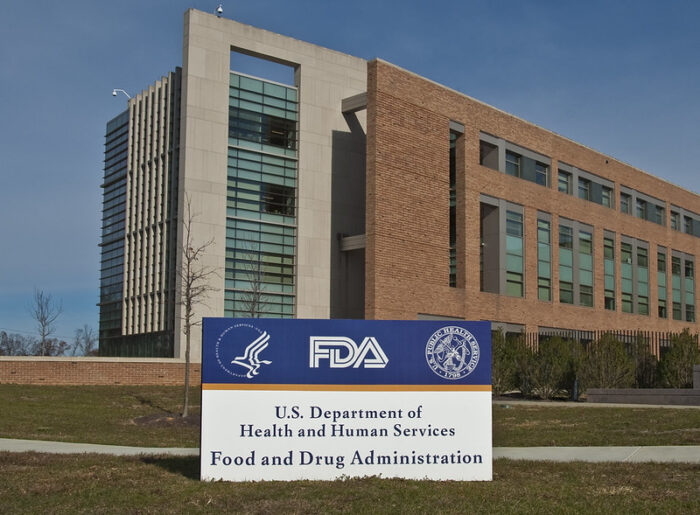
The Pfizer and BioNTech Covid-19 vaccine that has emergency use authorization in adults and older teens now has clearance for those 12 to 15 years of age. The FDA late Monday expanded the authorization to include the younger age group.
The initial authorization for that vaccine in adults also included those 16 and 17 years old. The other two authorized Covid vaccines, from Moderna and Johnson & Johnson, are cleared for those 18 and older.
To evaluate the efficacy of the Pfizer/BioNTech, the immune response in 190 volunteers 12 to 15 years of age who received the vaccine was compared to the immune response in 170 clinical trial participants ages 16 to 25. Speaking during a virtual news conference Monday evening, Peter Marks, director of the FDA’s Center for Biologics Evaluation and Research, described the immune response in the younger age group as excellent, “even better in the younger age group than in the 16 to 25 age group.” Those results build on preliminary clinical trial data reported in March showing 100% efficacy for the vaccine in the 12 to 15 age group.
Marks added that the agency also considered data for Covid-19 cases in the field. Out of 1,005 children 12 to 15 vaccinated with the Pfizer/BioNTech two-shot regimen, there were no cases of Covid-19. By comparison, Marks said that the group of 978 that received a placebo showed 16 cases.
On the matter of safety, the study in the younger group reported side effects similar to what was reported in the older cohort, including injection site pain, fatigue, headache, chills, and muscle and joint pain.
The Advisory Committee on Vaccine Practices, an advisory body to the Centers for Disease Control and Prevention, is scheduled to discuss the expanded authorization of the Pfizer/BioNTech vaccine during its meeting Wednesday. Marks said that following that meeting, the first shots could go into the arms of children 12 to 15 as soon as Thursday.
The expanded authorization for the Pfizer and BioNTech Covid vaccine was welcomed by Miguela Caniza, director of the infectious diseases program at St. Jude Children’s Research Hospital in Memphis, Tennessee.
“Vaccinating children for COVID-19 is a key component to reaching the two-thirds threshold necessary to obtain herd immunity and stop the pandemic from continuing to spread and mutate,” Caniza said in an emailed statement. “Today’s emergency authorization of the Pfizer vaccine for ages 12 to 15 is an important step in helping to control this virus in a safe and effective way for a larger percentage of the population.”
As Covid vaccines options expand to younger teens, the FDA is preparing for a broader discussion about vaccinating children. The FDA is convening a virtual meeting of its vaccines advisory committee next month to discuss pediatric use of Covid vaccines. The Vaccines and Related Biological Products Advisory Committee (VRBAC) is the same body that reviewed the three vaccines that have been granted emergency authorization. At the June 10 meeting, the FDA will provide an update on its approach to authorizing these vaccines in children 12 to 17 years of age. Meanwhile, the committee will discuss the data needed to support emergency authorization as well as full approval (a biologics license application) in children younger than 12. The FDA said that the committee will not discuss any specific products.
Marks said that one important topic that will be covered during the June meeting will be vaccination of children 11 and younger. The children age 12 to 15 in the Pfizer/BioNTech clinical trial were given the same two-shot regimen at the same dose as was tested in adults. That approach will need to change as the vaccine is evaluated in even younger children.
“As we get down to younger children, age 11 and below, different doses of the vaccine will need to be used and there are also different benefit/risk considerations because we know that younger children have been susceptible to this interesting multi-inflammatory syndrome with Covid-19,” Marks said. “And we need to make sure we’re not going to see anything untoward in the youngest children.”
The FDA will issue a notice with details about the meeting. When that notice appears in the Federal Register, the public may submit comments to both the advisory committee and the FDA. Additional meeting material, such as the meeting agenda with discussion topics and briefing documents from FDA staff, will be posted online at least two days before the meeting.
The advance material for these meetings usually includes questions that will be put to a committee vote. For the three Covid vaccines that have been reviewed for emergency authorization so far, committee members were asked to vote on whether the benefits of the vaccine outweigh the risks. Since the June meeting on pediatric use will not discuss specific products, it’s not clear whether there will be voting questions for the committee. It’s also not clear what role, if any, the vaccine developers will have in the hearing. The FDA did not respond to an email inquiry.
Pfizer and BioNTech have safety and efficacy data for their vaccine in adults and older teens six months after the second shot of the two-shot regimen. With those data, the companies last week submitted a rolling application to the FDA seeking full approval of that vaccine. Moderna said last week that it plans to start a rolling application seeking full approval of its vaccine in adults later this month
Photo by FDA














